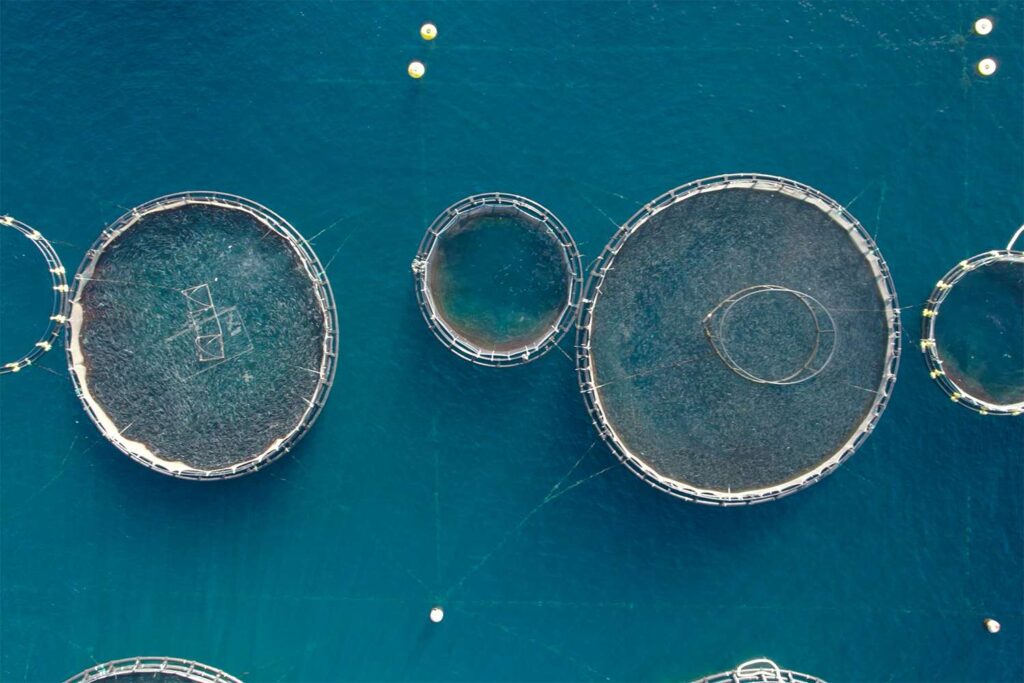A powerful new documentary, Until the End of the World, is shining a light on a growing industry that could be affecting your plate and the planet more than you realize — fish farming. The film takes viewers on a journey across three continents, revealing how the rapid expansion of aquaculture threatens marine ecosystems and local communities.
In an exclusive interview, filmmaker Francesco De Augustinis shares insights into the motivations behind the documentary, its powerful personal interviews and the messages it carries.
The film is not just about the environmental issues, he stresses — it’s more about “the very idea of sustainability.”
As a synopsis for Until the End of the World describes, “Aquaculture is the fastest growing food industry in the world, promising to be a sustainable solution to feed a growing global population that could reach 9.7 billion people in 2050.”
“The film, however, exposes a different reality: local communities in different regions are fighting against the expansion of fish farms, accused of polluting pristine waters, grabbing natural resources and even fostering hunger and food insecurity,” it concludes.
Until the End of the World/ONE EARTH Doc
Filming included compelling interviews with impacted communities, notably in Senegal, where fishermen and women shared their struggles with diminishing catches and economic hardship. The director recounts that their willingness to speak candidly stemmed from the intimate, low-profile approach he used.
“I went to this beach in Western Africa, and it was just me and a small camera,” he recalls of his interaction with a local fish processor who criticizes fishmeal factories for buying all the fish, leaving little for the local communities to purchase.
“I don’t have an agenda,” De Augustinis says of his approach to documenting these moments. “I just let people speak; I don’t want to impose my view.”
The film also explores how fish are being caught from fragile ecosystems, like krill in Antarctica, to feed farmed fish — taking food from animals in the wild. As an expert on Antarctica claims in the film, commercial krill fishing is leading to a decrease in penguin populations by increasing competition for this crucial prey.
“We say that this is sustainable and we are saving the world and we are changing the diets for the better,” De Augustinis says. But as he sees it, these industry claims of “sustainability” are often misleading. “The solutions are not actually solutions,” he argues.
Until the End of the World/ONE EARTH Doc
While the film has been screened at festivals and is streaming on Vimeo, De Augustinis says he has faced little resistance from the fish farming industry — mainly because he chooses to keep a balanced, non-confrontational tone to allow the stories “speak for themselves.”
Looking ahead, De Augustinis is working on an upcoming documentary that will examine global food security and inequality.
“We’ve heard about the food crisis,” he says, “that we don’t have not enough food for everybody. Is this real? This is the question that the documentary is going to answer. The idea is to show to what extent the food that we already have is not being used in an equitable way.”
In a director’s statement, De Augustinis says of Until the End of the World: “The idea of the documentary is to tell and connect the experience of different communities that independently, in different parts of the world, are fighting against the expansion of fish farming. From Italy, to Greece, from Spain to Senegal, up to the once pristine waters of Chilean Patagonia, the film exposes the conflicts for the resources that this industry produces, making huge profits while promoting itself as a sustainability champion.”

